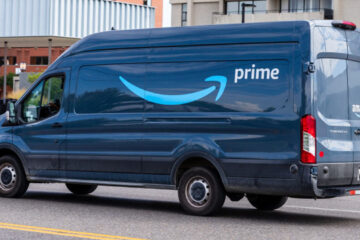Target (TGT) has some major challenges on its hands. The retailer has recently suffered from boycott threats and declining foot traffic in its stores as it faces sharp criticism for following a controversial trend in corporate America.
In January, Target unexpectedly scaled back its diversity, equity, and inclusion program shortly after President Donald Trump issued an executive order dismantling the federal government’s DEI programs. In the executive order, he claimed that the programs enforce “illegal and immoral discrimination.”
💵💰Don’t miss the move: Subscribe to TheStreet’s free daily newsletter 💰💵
Target’s DEI cuts include withdrawing its participation in the Human Rights Campaign survey, which tracks LGBTQ+ corporate policies and practices.
Related: Target’s latest policy change sparks massive boycott threat
It also discontinued its three-year DEI goals and concluded its Racial Equity Action and Change initiatives. Those initiatives involved advancing the careers of Black employees, instituting anti-racism training for team members, promoting Black-owned businesses, sourcing products from Black suppliers, etc.
Shortly after Target announced these changes, it faced multiple boycott threats from consumers.
According to recent data from Placer.ai, foot traffic in Target stores started to decline during the week of Jan. 27, and the trend continued over the next two months. Last month, Target’s foot traffic shrank by 6.5% year-over-year.
Target CEO attempts to avert another boycott
Amid this alarming trend, Target CEO Brian Cornell agreed to address the controversy head-on. He accepted an invitation to meet with the Rev. Al Sharpton, president of the National Action Network, on April 18 to discuss Target’s decision to pull back on DEI.
“You can’t have an election come and all of a sudden, change your old positions,” said Sharpton in a recent interview with CNBC. “If an election determines your commitment to fairness then fine, you have a right to withdraw from us, but then we have a right to withdraw from you.”
Target faces backlash after walking back its diversity, equity, and inclusion efforts.
Image source: MDoculus/Getty Images
Sharpton said he will consider igniting a Target boycott if during the meeting, the retailer doesn’t express a commitment to the Black community and work with Black-owned companies.
“If [Cornell] wants to have a candid meeting, we’ll meet,” said Sharpton. “I want to first hear what he has to say.”
Sharpton later posted a statement on social media platform X claiming that his meeting with Cornell was “very constructive” and “candid.” Sharpton and his team will determine “next steps” with Target during the Easter holiday.
“This morning, I had a very constructive and candid meeting with Brian Cornell that included NAN National Board Chair Dr. W. Franklyn Richardson and NAN Senior Advisor Carra Wallace,” said Sharpton. “I am going to inform our allies, including Rev. Dr. Jamal Bryant, of our discussion, what my feelings are, and we will go from there.”
Related: Target makes controversial move to dodge high tariff costs
Target isn’t the only company Sharpton has recently criticized for cutting DEI. Earlier this month, he sent a letter to PepsiCo (PEP) expressing his “profound disappointment” with the company’s decision to scale back its DEI initiatives.
In the letter, he threatened to start a boycott against the company. However, on April 16, Sharpton and several members of National Action Network met with PepsiCo CEO Ramon Laguarta and PepsiCo North America CEO Steven Williams to discuss DEI.
In a statement on X, Sharpton said the meeting with PepsiCo leaders was “constructive.” He also said that he and National Action Network members will make “a final determination and recommendation” in the next few days on whether to proceed with a PepsiCo boycott.
Target faces additional threats to sales
The last thing Target needs is another boycott, especially when it is struggling to boost its weak sales.
In Target’s fourth-quarter earnings report for 2024, it revealed that its comparable sales only increased by 1.5% year-over-year. Its operating income, a company’s profit after expenses, also shrank by about 21%, compared to the same quarter in 2023.
More Retail:
AT&T quietly issues stern warning to customers Sam’s Club makes a big change to a beloved membership perkGameStop announces risky move amid store closures
Like many retailers across the country, Target is also facing the looming threat of tariffs (taxes companies pay to import goods from overseas), which could cause it to increase prices in stores. This move could drive away frugal customers.
The retailer is already set to face a boycott from The People’s Union USA, which is scheduled for June 3-9 this year.
According to The People’s Union USA’s website, it targets large corporations that have allegedly “driven up prices, underpaid their workers, and outsourced jobs while raking in record profits.”
Related: Veteran fund manager unveils eye-popping S&P 500 forecast


